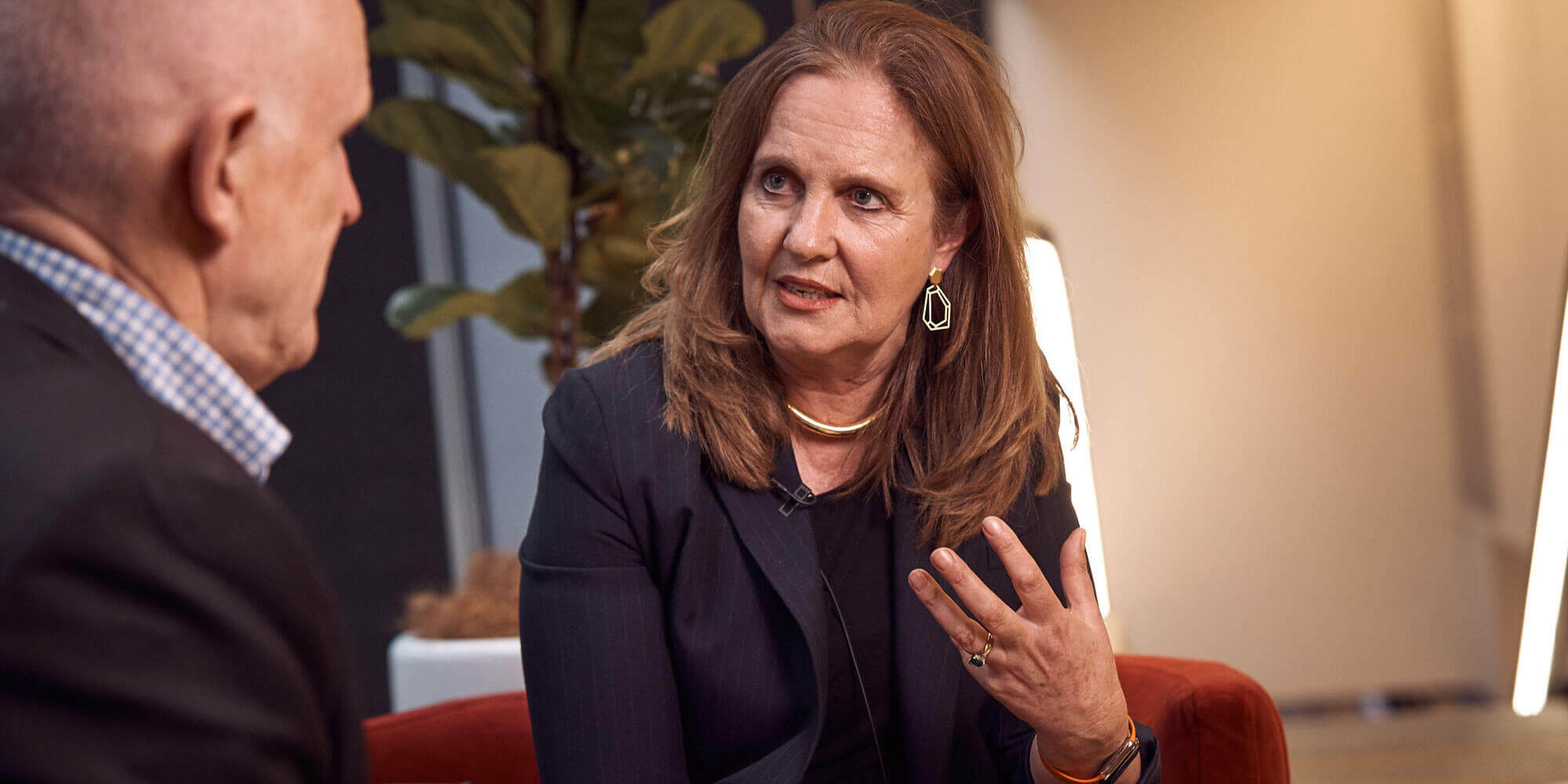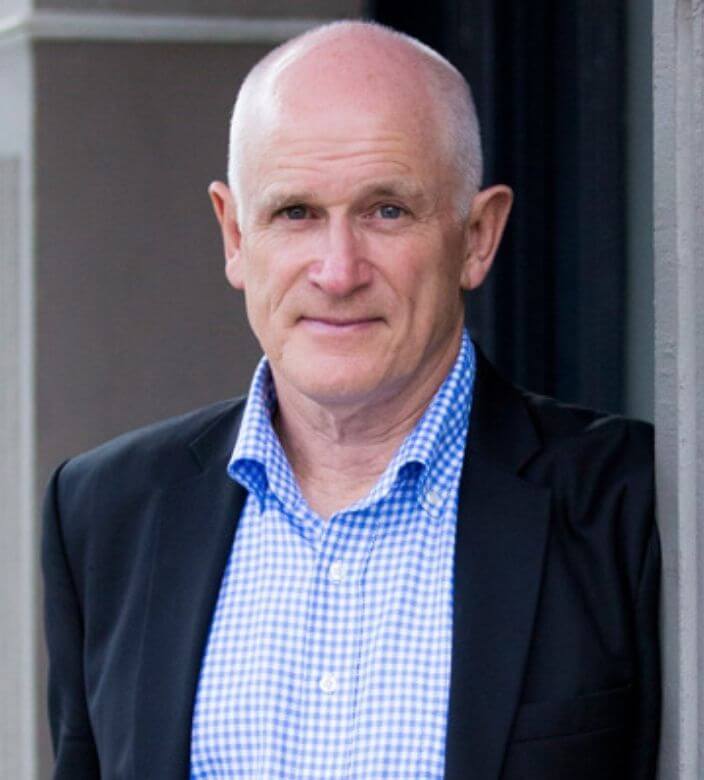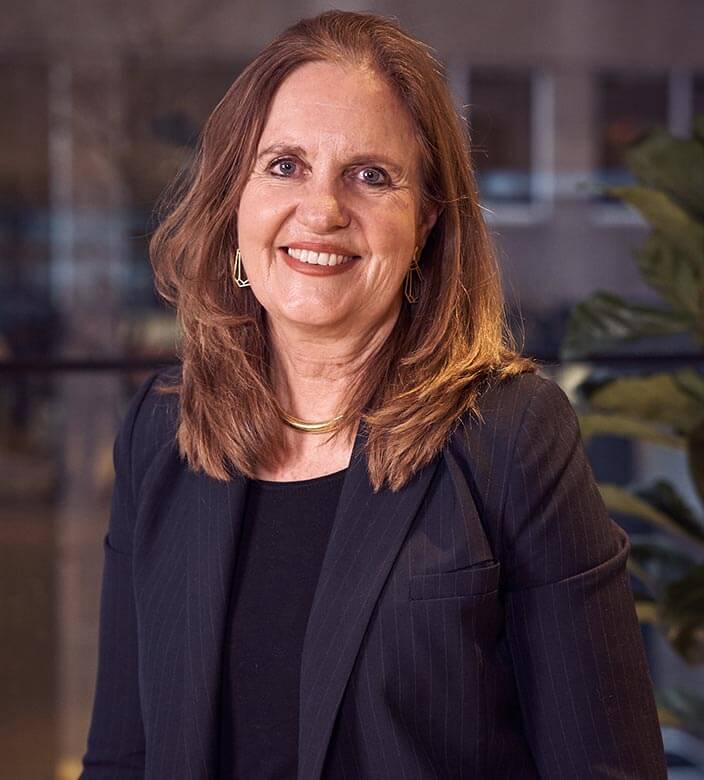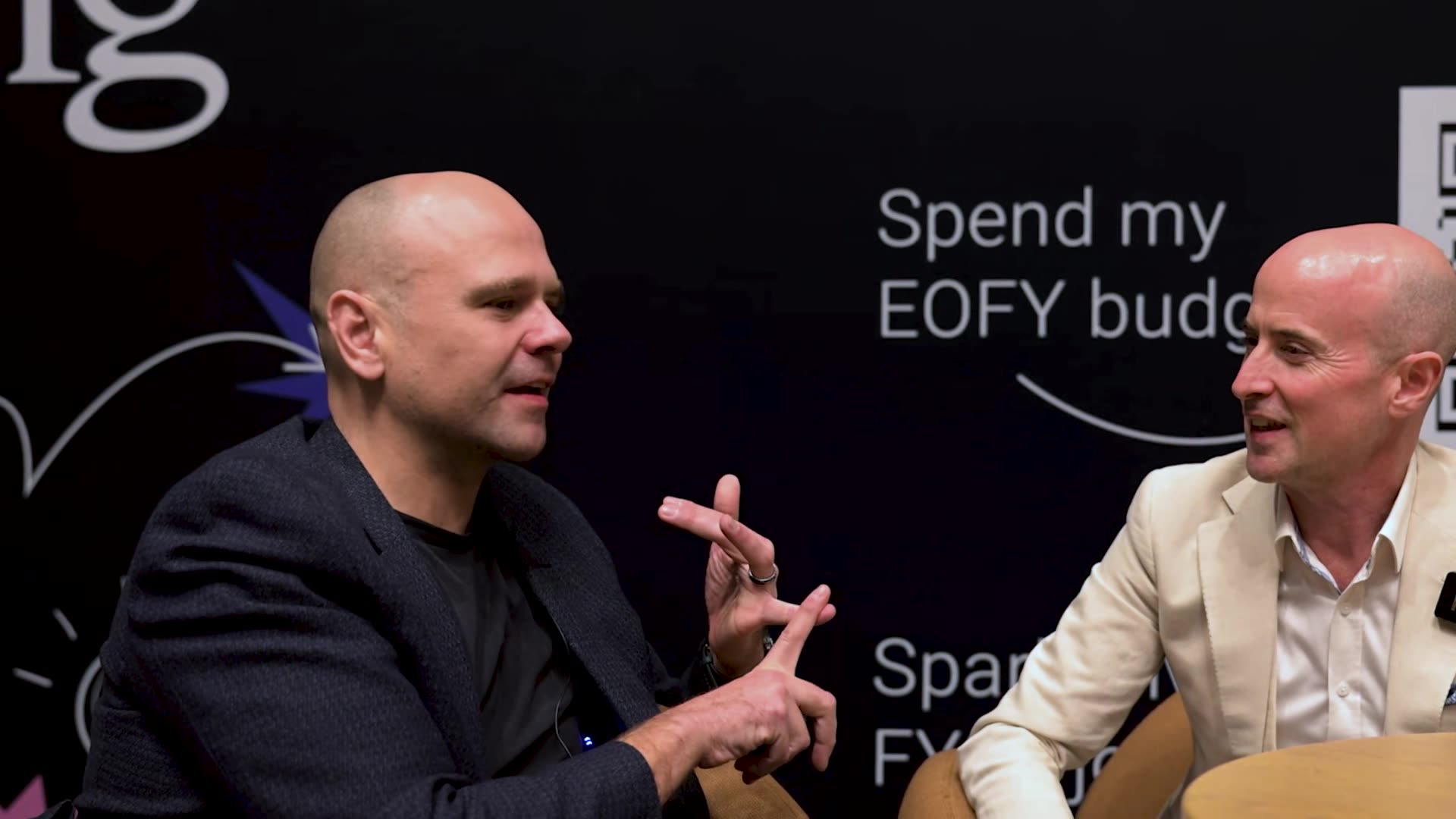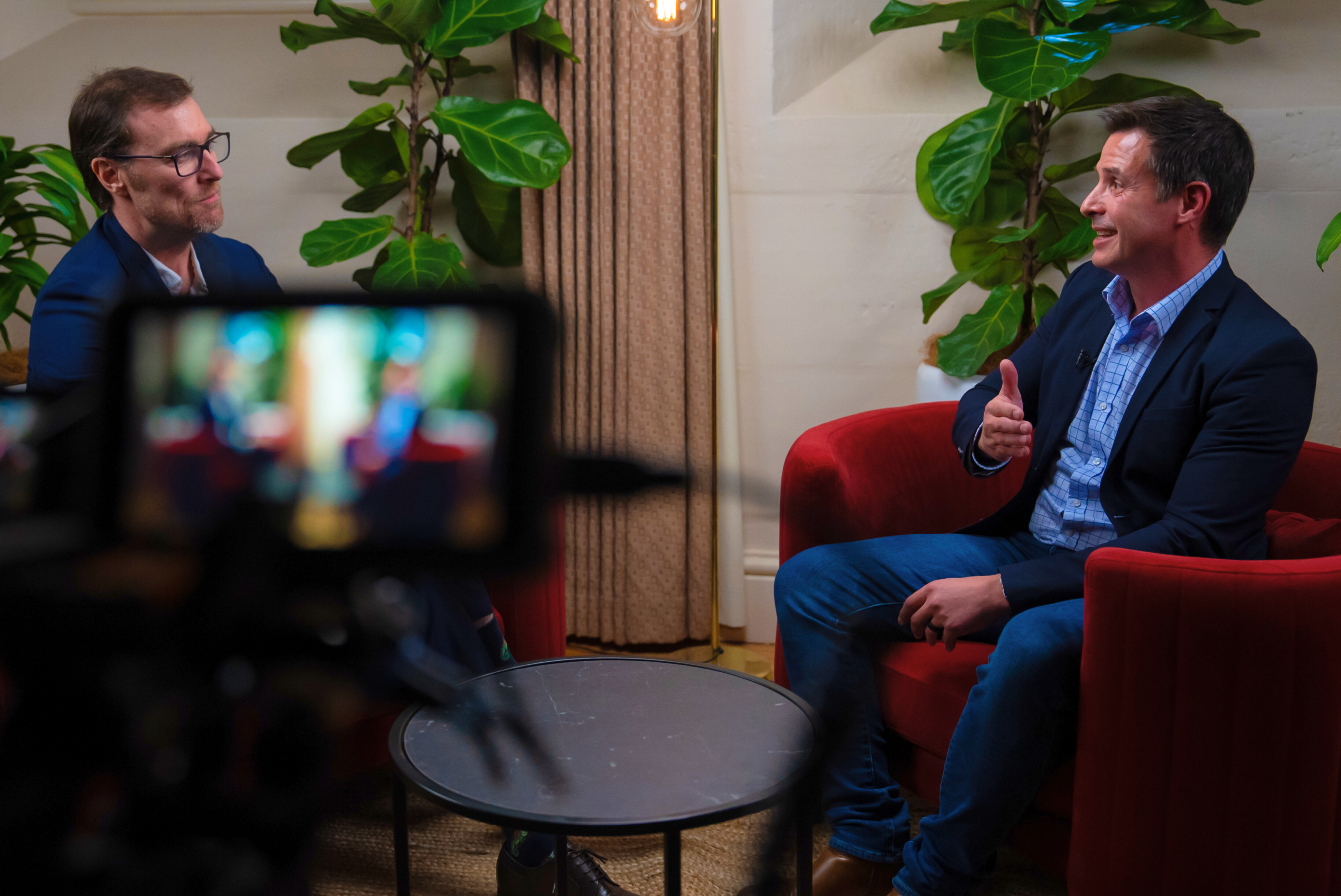Optimising Employee Experience in the Gig Economy
MIT CISR’s Research Scientist Kristine Dery explains how to enable your digital workforce of full-time employees and freelancers. She also shares her thoughts on CIOs role as talent managers and the attributes of a data-driven business.ADAPT’s Senior Analyst Peter Hind interviewed MIT CISR’s Research Scientist Kristine Dery at CIO Edge. She explored how to encourage a digital workforce with a mix of both freelancers and full-time employees alike to contribute to an organisation’s vision. She also gave her thoughts on CIOs role as talent managers and the attributes of a data-driven business.
Peter Hind:
You were talking there about a workforce, increasingly made up of hybrid mixture of freelancers, full time engineers, those in the gig economy, et cetera, how do you have a cohesive worker employee experience, when you’ve got people across so many so different buy-ins to the organisation?
Kristine Dery:
So our research definitely shows that at the moment with the current way of understanding employee experience companies that employ their digital workforce as FTEs are benefiting significantly across all dimensions of performance, right?
Their profit margins are higher, they’re much more innovative, they’re faster to market and they’re more agile. So it definitely pays to build an employee experience where you’re able to attract the key people that you need around your digital workforce as FTEs.
But that’s not enough because we’re going to need people that have got new ideas, that have got new ways of thinking about things, that have been out across multiple industries and have been able to bring ideas and products and capabilities from all of those industries and thinking across those industries.”
And we’re going to need people with specialist skills that we’re bringing in and out for different one off projects that we’re doing.
So we have to know how to manage that really well so that those people that are not employed full-time are able to integrate with our workforce much faster and work really effectively to deliver value.
Peter Hind:
But how do you stop them being seen as an outsider inside the thing?
Do you treat them as a full-time employee and then everything with the same issues on HR and the same attention to their well being as another employee?
Kristine Dery:
Absolutely, I think this is where we have to completely change the way we think about our people. And our people are going to be a broad range of people employed under a multiplicity of different ways but they’re all going to want to share and should be sharing in our training and development.
They should have access to search so they can find people and find conversations and find projects so they can learn and they can share their own knowledge, across the organisation.
I just think we have to think very differently about how we create this great employee experience where people can be really good at what they do regardless of how they’re employed in the organisation.
Peter Hind:
And stop viewing them as a mercenary who is just there to make some money but actually somebody who can contribute to the organisation and if it goes well, they could become a full-time employee later on.
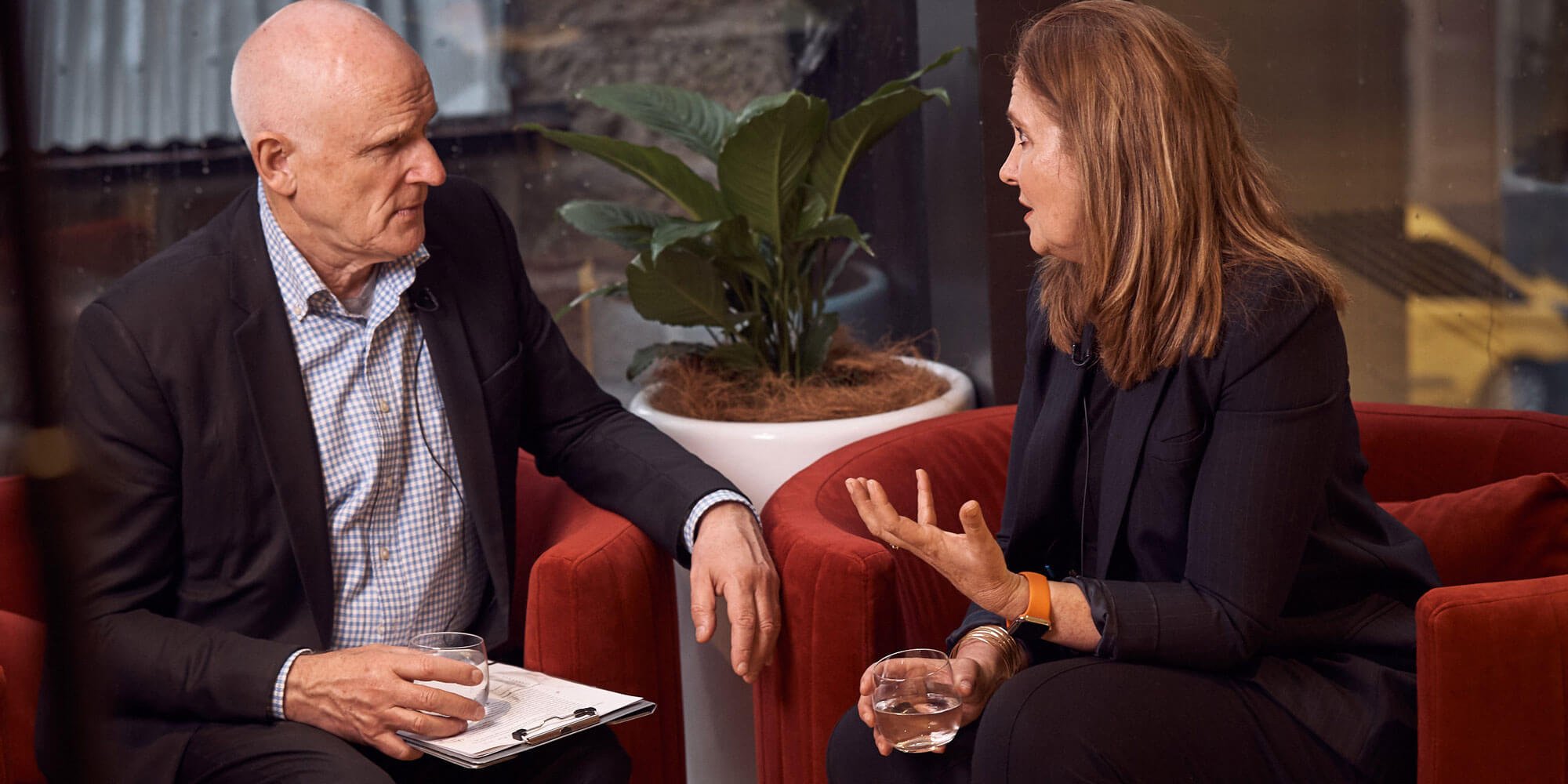
Kristine Dery:
If they want to. I mean, a lot of people with these great skills, these very high level of skills, don’t want to work full-time in our large corporations.
They want to be in this more gig freelancer type of world. So we want the best of those people to come and work for our organisations. We want the ones that want to build relationships with us and learn and be part of what we do and committed to what we do.
We don’t want the transactional ones that just want to come in and out, do a bit of work and then go off scheme.
Peter Hind:
I’ve just seen the results, from the Conference Board study on CEO challenges where they document what the CEOs globally see as their biggest challenge.
The number one challenge they talk about, is the war for talent, getting the skill sets into their organisation.
How can a CIO or IT executive play a part in helping a CEO fulfil or address that challenge?
Kristine Dery:
So I think the CIO is best positioned for this. They are the ones that have to really understand what employee experience is going to enable them to attract the kind of digital talent that they’re going to need, and not only attract them but grow them from within.
If you’re in a small geographical location that just doesn’t have the ability to go out and grab talent from anywhere and everywhere you’re going to have to work with what you’ve got and you’re going to have to grow that talent and future proof them.
Peter Hind:
And clearly I think, sorry to interrupt, but are the CIOs probably understand what those people represent in terms of how the technology is changing organisation?
What are the people you need to man it and staff it and those things?
Kristine Dery:
In most of the companies that I am talking to that are high performing in terms of their employee experience, the CIO is playing a major, major role in that.
So the skills of the CIO are way beyond, just getting an IT unit to work effectively, they really are starting to become the talent managers of the organisation.
And we see it in places like BBVA, head of talent becomes head of engineering globally. So these are really interesting times, for the skills of a CIO.
Peter Hind:
But it does require the CIO to step up a bit and say, actually, I’ve got something beyond running the trains of technology to delivering the new business to consumer, but actually to be saying who are the people who should populate that business?
Have you got that insight?
Kristine Dery:
Yeah. Well, for BBVA, the biggest currency for their talent has been their ability to be able to enable that talent to go up and work on social projects and learn new skills and attract other people that are working in those environments to come and work for BBVA.
So the CIO having the vision to enable that and value it within the organisation has been crucial to their whole strategy.
Peter Hind:
What do you see, Kristine? The attributes of a data-driven business?
Kristine Dery:
I think the biggest attribute of a data driven business is building the capabilities of the organisation right across the organisation and understanding what it means to really be able to work with data in a digital environment.”
And that’s certainly been the way that BBVA has been able to build that strategy and then continue to develop it.
So creating those deep skills, those really deep analytical skills from data scientists of today and then being able to create an environment where they can have very effective conversations, otherwise, you’ll lose them.
If they can’t work with the business effectively to be able to develop new data-driven products and services in ways that really make sense and stretch them, stretch their skills, and enable them to use all of the new technologies to do that, then they’re not going to stick around in these large corporations.
Peter Hind:
And what I heard you say there was actually that data-driven business is actually organisations not thinking they’ve got the answer with one query, you’re actually pushing and pushing and pushing the boundaries of the data.
So you’ve got a desire, an inquisitive desire to find out more and more and more.
You’ve got to cultivate that sort of mindset.
Kristine Dery:
I absolutely agree.
And it’s that inquisitiveness, I like that our curiosity that enables the company to create the priorities around their fundamental technologies that enable the data to be delivered in various different ways.
Stored delivered, analysed, but it’s the people that are really enhancing those capabilities more than the technology itself.
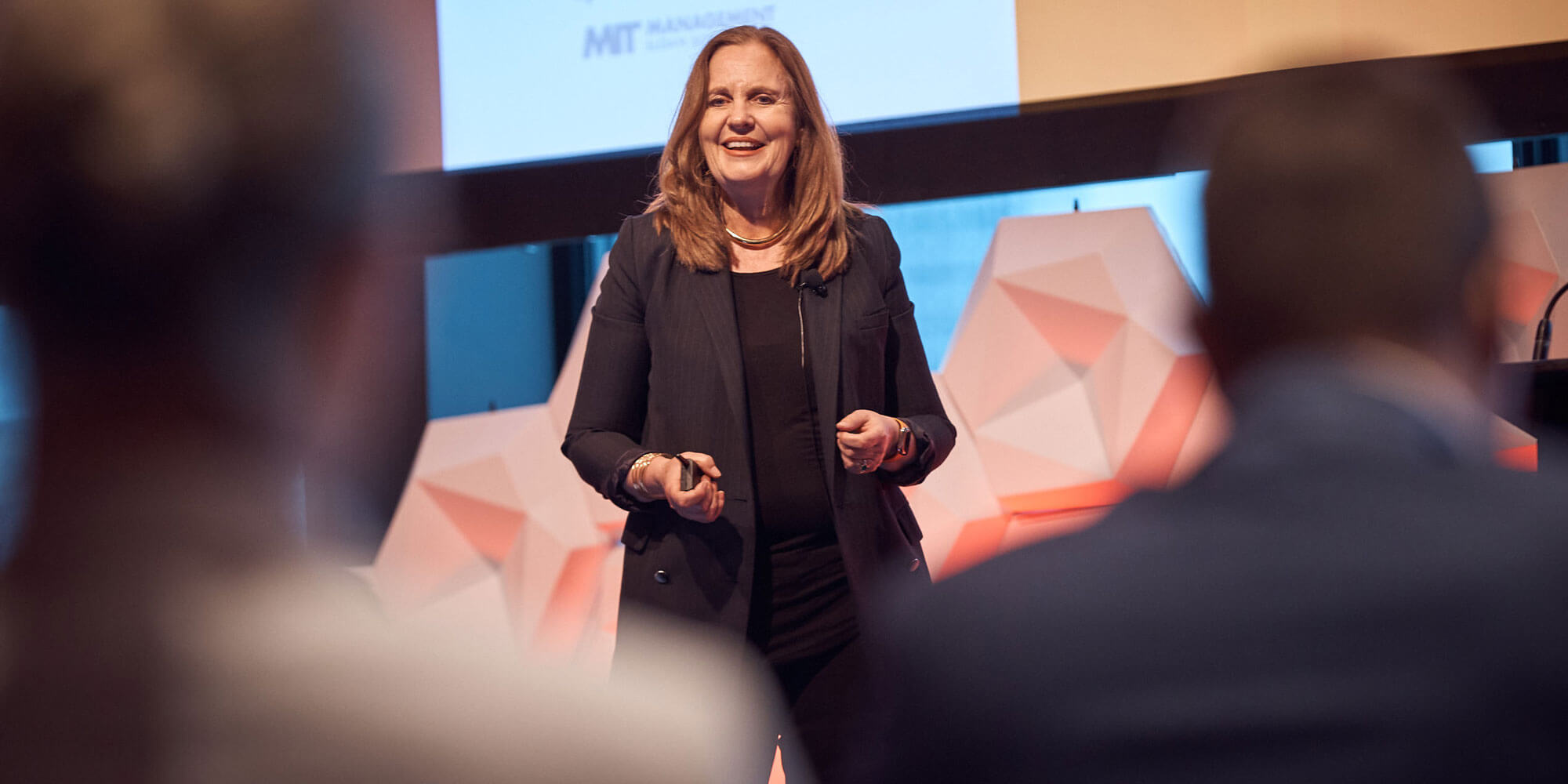
Peter Hind:
I know, Kristine, you’ve just come back from an AI conference in China. And you told me that in some ways, you were so excited, in some ways you were so appalled.
Can you tell us what appalled you about that sort of AI things and what excited you about it?
Kristine Dery:
Right, well, the conference was in the US actually, but there was, it was a global conference. So it was really people exploring AI robotics and the future of work.
I think what excited me was the new ways of thinking about how people and machines are going to be able to work together to do so much more.
And that’s really exciting and powerful and be able to solve complex problems around health care, make jobs much more interesting to do, because we can take out a lot of the junk a lot of the stuff that really is, is making a lot of jobs pretty ordinary and enable people to thrive.
The scary bit for everybody is the ethics and trying to come to grips with, “just because we can, should we?” I think these questions on everybody’s lips, I think that there really are these pieces of research that are really trying to get to the nub of some of these ethical issues. But again, people are going to have to enact these ethics and people are going to have to query the technology itself and the AI and robotics.
To ask what’s behind it to lift the lid on it, we’re going to have to have so much more knowledge about really being able to dig deeper into these analytics.
Peter Hind:
Well, it’s interesting isn’t the facial recognition and all the protesters in Hong Kong doing everything to hide their face?
It can be a sort of, almost sort of worlds that has sort of ominous tones to it if we don’t manage it properly.
Kristine Dery:
Right, yeah.
Peter Hind:
Kristine, final question around some of the work you’ve been doing with transformation.
You’ve been seeing a number of ways of transforming taking an organisation and you came across the idea that actually somewhat of a more of an evolutionary approach, sometimes a bit step forward a bit step back, as we get there, seems to be a way that engages employees the most in that.
Why do you think doing it gradually and evolutionary small steps gets a better outcome for digital transformation, than being bold and let’s get on with this and all that sort of stuff?
Kristine Dery:
I still think there’s room for being bold.
So I’m not dismissing that way, that approach and there are times when actually we have to be, because we’ve got to make some significant steps and they require a lot of courage and bravery into and people have to trust and move forward.
I think that the challenges though, we’ve got steep learning curves to go through and a lot of our people are coming out of command and control models that they’re very comfortable in and they’ve been very successful in those environments.
And we need to take them by the hand and coach them to be effective and coach them and how to work in these types of digital environments and that takes time and that’s why we talk about habits and we don’t talk about culture, because habits are things that are deeply embedded, but they’re things that can change.
They need help and they need support, and people will fall back on their old habits when they get stressed or when they get into environments where they don’t understand or they’re not clear about what they’re trying to do.
So we need to be patient at times and I think we need to allow people to grow and learn and make mistakes.”
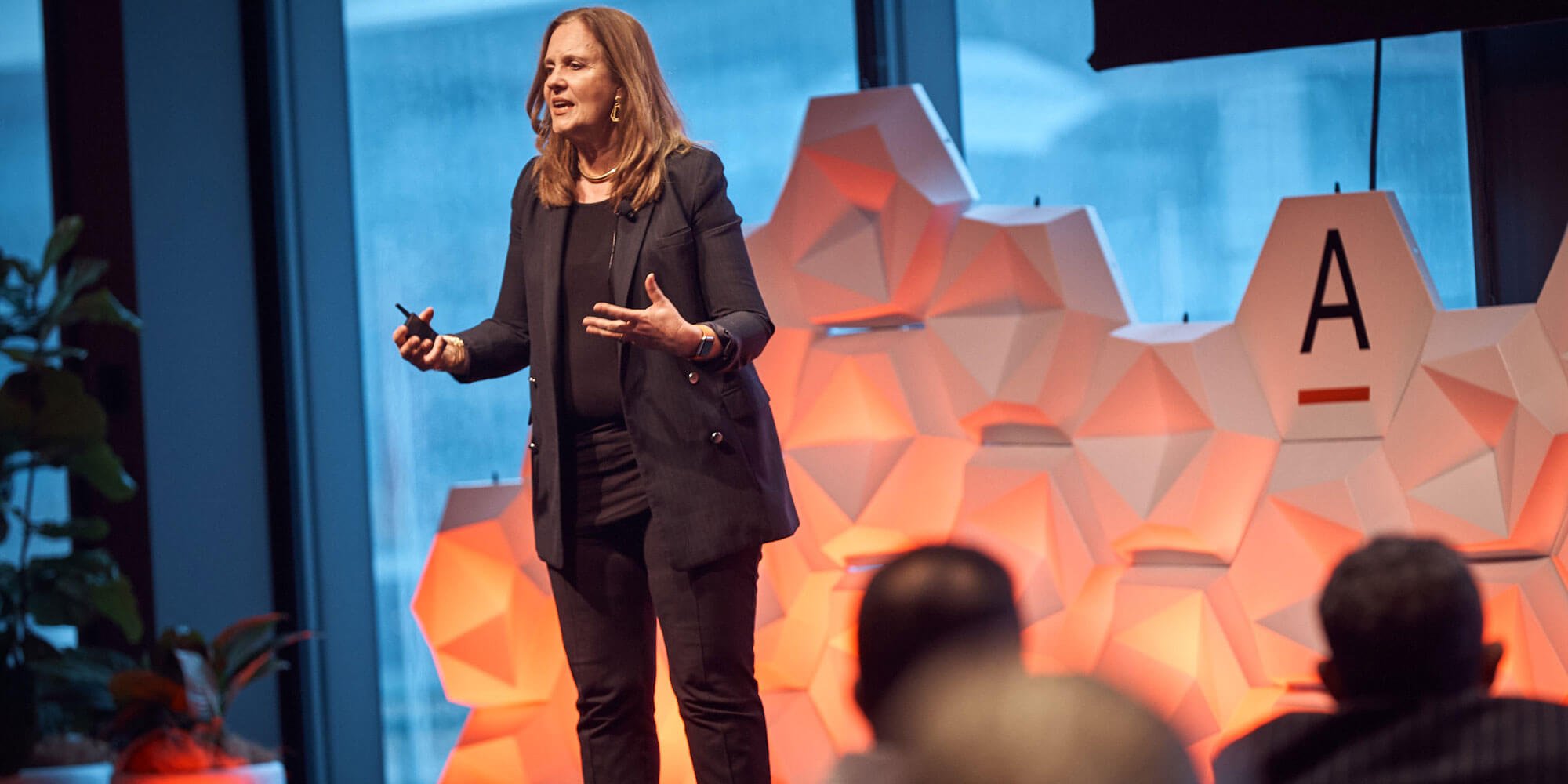
Peter Hind:
You go around the world, you talk to lots of organisations and you said a statement in your presentation that collective habits equal culture.
So what are the seven habits if Stephen Covey wrote the Seven Habits of successful people?
What are the seven habits of a progressive organisation? And you don’t have to mention seven, if you can’t.
Kristine Dery:
I don’t think we can be that prescriptive actually. I think that organisational context so unique and they should be unique. I think that companies are really starting to understand what it takes to create the right work habits, the collective habits of people, to make them more effective in a digital world.
And a lot of those things around how do we work together more effectively, more collaboratively?
How do we participate in innovation where we never thought we were an ideas person? It’s that permission to do things differently. And it’s also about this real, this acceptance that we’re going to have to learn collectively and individually. And then that learning is an ongoing process.
Peter Hind:
It’s a journey, not a destination.
Kristine Dery:
Absolutely.
Peter Hind:
So what I heard you say, you have to have a mindset that your organisation isn’t right in everything, you’ve got to be open to evolving, to going to new places, to engaging your staff and harnessing their talents.
Kristine Dery:
We’re never too old to learn new things.
I think that I’m seeing around the world, people that are quite mature in their careers, stop and take account and say I’m going to learn AI and I’m going to hit up this organisation and I’m going to run their AI department because I’ve got this enormous knowledge of what the company does, but my role in things like being an accountant, for example, is probably not going to be valued in the same way.
But if I add AI capabilities into that, then I can create value in a different way to what I could before. So that to me is exciting. That we can constantly grow and learn new capabilities and that organisations will take responsibility in supporting that activity.
 Watch Now
13:29
Watch Now
13:29



















